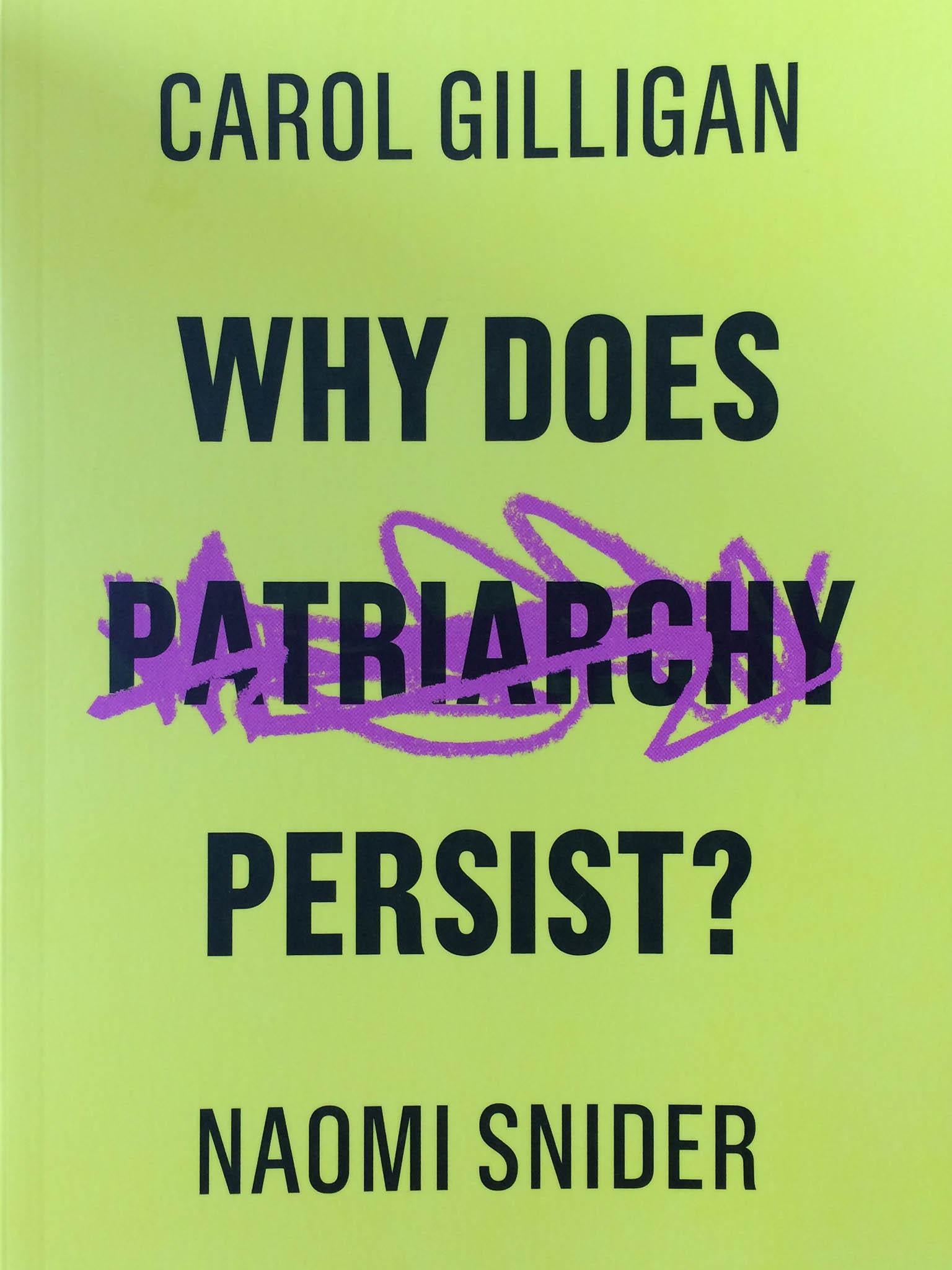Despite the #MeToo movement, patriarchy still persists – is it a choice?
It has been diagnosed and deconstructed again and again, but still exists in today's society. Andy Martin considers why we 'resort to a relationship of power out of fear' rather than true friendship

Your support helps us to tell the story
From reproductive rights to climate change to Big Tech, The Independent is on the ground when the story is developing. Whether it's investigating the financials of Elon Musk's pro-Trump PAC or producing our latest documentary, 'The A Word', which shines a light on the American women fighting for reproductive rights, we know how important it is to parse out the facts from the messaging.
At such a critical moment in US history, we need reporters on the ground. Your donation allows us to keep sending journalists to speak to both sides of the story.
The Independent is trusted by Americans across the entire political spectrum. And unlike many other quality news outlets, we choose not to lock Americans out of our reporting and analysis with paywalls. We believe quality journalism should be available to everyone, paid for by those who can afford it.
Your support makes all the difference.According to myth and legend, when the “shades”, or ghosts, of the dead, who inhabit the blissful groves of Elysium, are asked if they would like to be reincarnated, they all say: “No way! Life was not a bowl of cherries the first time around, thanks very much.”
So then they go for a dip in the river Lethe. They might have realised from the name, meaning “forgetting” or “oblivion” in the original Greek, that when they come out again, all memory of their past lives will have been erased. So when these poor souls are asked a second time if they fancy being alive again, they say, OK, why not, let’s give it a whirl, maybe it’ll be interesting.
One lesson to take away from this ancient narrative is: nobody asked to be born. But no one can remember their own birth, so that’s another thing we tend to forget. We are, as the existentialists used to say, “thrown” into the world. Birth is involuntary.
So life itself is, from the very beginning, non-consensual. Which sets a bad example for everything else that comes later on. Notably our personal relationships. And specifically the nexus between men and women.
Patriarchy has been around for a long time – maybe forever. In its rawest, most primitive and cartoon form, it used to be symbolised by the image of a hairy guy in a bear skin, wielding a club in one hand and dragging a woman along by the hair with the other. Taking her to his cave, presumably.

In the Game of Thrones-style medieval era, it was embodied in the droit de seigneur, (”the lord’s right”). Back in the day, a young man could marry a young woman, just as they do now. But the lord of the manor had in principle the right to bed the bride before the groom did (also known as the jus primae noctis, “the right of the first night”, or more often in France as the droit de cuissage, from cuisse, meaning thigh).
Like a rehearsal for the wedding night, but with another guy. Why? Because he owned the land she lived on. So he owned her. Whether she liked it or not. Under feudalism, an accident of birth gave you the right to have sex with whomever you pleased. Sexual hierarchy arose out of a social hierarchy.
In more recent times, patriarchy has morphed into a movie producer saying to a wannabe movie star, “Come up to my hotel room and we’ll go over the script together.” And he will be in his dressing gown. Or partially out of it. And she has to like it or at least go along with it. Not put up too much resistance. And if she does, then patriarchy is also the right to interpret No to mean Yes.
“Hard” patriarchy is simply rape and is clearly illegal, but “soft” patriarchy, an asymmetry of power, infiltrates and subverts relations between men and women worldwide. There are a million examples throughout history. It’s something we can see in action every day. It’s right in your face. But there remains an outstanding mystery.
Since, one way or another, patriarchy has been called out, denounced and ridiculed so many times, from Charles Fourier (who invented the term “feminism”) and Mary Wollstonecraft (A Vindication of the Rights of Women) to Simone de Beauvoir’s The Second Sex and beyond, how comes it’s still with us?
It has been diagnosed and deconstructed again and again. Not least in the #MeToo campaign. You might think that once exposed to the light, it would just shrivel up and die and a normal signal could be restored (or established for the first time). Evil spirits would be exorcised and the pigs would go diving off the cliff and drown.
But, for some odd reason, it doesn’t quite work like this. The movie producer mentality is still with us – even post-Weinstein. To consider just one minor example, didn’t America recently elect a guy who behaves like a cartoon caricature with women, just grabbing them by the hair or any other part of the anatomy and having his way with them, even if he has to pay them off later to shut them up?
It’s a new droit de président. Even Steve Bannon described Trump as “the patriarch”. We’re right back to the Middle Ages. Or cavemen. Now two women at New York University, Carol Gilligan and Naomi Snider, have addressed the mystery head-on in a new book, Why Does Patriarchy Persist?
Why does an obvious and stupid and self-defeating delusion – that one half of humanity should automatically have special rights and privileges over the other half – have such a grip on the collective psyche? And they come up with an answer that takes us right back to our origins, as human beings, to when we were babies, entirely dependent on the wiles and whims of a parent.
There is a short video that you can watch on YouTube – if you can steel yourself – the “still-face experiment” conceived and conducted by psychologist Edward Tronick, a professor of child development at Harvard.
Spoiler alert: it’s verging on sadism, of the emotional kind, towards a one-year old (a girl, as it happens). At the beginning of the film, mother and baby are behaving like a regular mother and baby. There is a lot of chit-chat between them, reciprocal communication and feeling, in short, engagement, each way.
We would rather imagine that men are from Mars and women are from Venus than ever accept the obvious, that we are all from Earth
Then the cruel psychologist snaps his fingers and the mother completely disengages. She says nothing, her face becomes still. There is no sign of feeling. The fun and games are over. It’s like the tap has been suddenly turned off. The kid goes into a spiral.
She tries to get the mother’s attention, using language and body language, to get her to react and respond the way she did before. But no reaction. Nothing. Omertà. Very quickly, the baby loses control and is screeching and screaming and writhing in agony.
Finally, the psychologist snaps his fingers again and the two minute vow of silence comes to an end. The mother responds, normal service resumes. Harmony is restored. But it’s hard to escape the thought that the child is now scarred for life by the realisation that love, just as easily as it can be given, can be withdrawn again. Snatched away.
It’s almost unbearable to watch, maybe because this speaks to our deepest anxieties. I love you, I need you, but do you love me, do you need me? The answer to this question (despite – I love you! – all assurances to the contrary) must be: I honestly don’t know.
Pascal said that all human misfortune stems from our inability to remain at rest in a room. Gilligan and Snider argue that it stems from our inability to remain at rest when confronted with the “still face”. We just can’t stand it. Patriarchy is the result.
Beset by the apprehension of love being withdrawn, we keep our anxieties at bay by building walls around us. We resort to a relationship of power out of fear. We would rather imagine that men are from Mars and women are from Venus than ever accept the obvious, that we are all from Earth.

The effect is that real and equitable feelings are sacrificed, Gilligan and Snider say, in one of their broadest statements, in favour of “an order contingent on dividing people into the superior and the inferior, the touchables and the untouchables, whether on the basis of race, gender, class, caste, religion, sexuality, you name it”.
The surprising conclusion follows that all those stupid macho types who think they are god’s gift, including the caveman with the club, are actually sensitive souls, verging on neurotic, who can’t cope with real, personal relationships and the harsh reality of emotional give-and-take.
But women are just as caught up in this game of thrones as men; they too buy into their roles, a script that associates emotional detachment with manhood and ascribes compulsive care giving and self-abnegation to womanhood.
The paradox described in Why Does Patriarchy Persist? is that we sacrifice connections in order to immunise ourselves against a loss of connection. I think the Beatles put it rather well in “Hey Jude”: “For well you know that it’s a fool who plays it cool by making his world a little colder.”
We are living in an obesogenic environment, surrounded by burger joints and chicken wings, so too we are faced with fast-food romance
Gilligan and Snider adopt a neo-existentialist perspective, which is to say that patriarchy is a choice, a system in which we are complicit. I was reminded, in thinking about the lost souls described in their book, of those shades in Elysium after they have bathed in Lethe.
Having forgotten about the lives they have lost, they are willing to go along with the new, alternate life. So too it seems we are guilty of a massive forgetting of something we have lost and replacing it with this second-hand rigmarole that is patriarchy, in which we become caricatures of ourselves.
I can think of contemporary embodiments, and Gilligan and Snider tell of their own experiences in a very personal way, but this story is already right there, alongside the journey into the Underworld, in Virgil’s Aeneid, in the tragic love affair between Dido and Aeneas.
Aeneas, sailing away from Troy (destroyed by the Greeks) lands in Carthage. He and Dido – Queen of Carthage – fall in love. But he leaves her, driven onwards towards Rome and Empire. She, grief-stricken, stabs herself with the sword Aeneas has left behind and finishes herself off on a funeral pyre.

The two lovers will meet one more time, but she is disincarnate in Elysium, and Aeneas makes some kind of apology by saying that, “the gods’ decrees drove me with their behests”. Oh no they didn’t, say Gilligan and Snider. This is the formation of patriarchy right here.
The man who does not care enough, who distances himself; the woman who cares too much and relinquishes her own life. But there are no gods. In other words, patriarchy is not biologically determined or genetically encoded. It is not inevitable. It is not natural. It is not set in stone. We got into it, so we can get out of it. It’s ingrained, it’s a habit, but like any other addiction it is one we could learn to kick, given enough “resistance”.
Oddly enough, Gilligan and Snider were partly inspired by Donald Trump: “It was the shock of the 2016 election that jolted us into writing this book in the hope that if we can understand the psychology driving patriarchy, including those forces that act on us without a conscious thoughts, we can avoid becoming like Oedipus and walking blindly into what otherwise may seem our fate.”
So our psychological defence mechanism, our fear of vulnerability, may be loading the political game too. We get used to injustice. We think it’s normal. Why Does Patriarchy Persist? argues that we have given up real relationships in order to have pseudo-relationships.
Gilligan and Snider say that “love” is the way out of the labyrinth. But maybe the point is that we have become overly fixated on the very idea of having a “relationship”. We are suffering an emotional crisis equivalent to the obesity crisis.

Just as we are living in an obesogenic environment, surrounded by burger joints and chicken wings, so too we are faced with fast-food romance, prodded and poked and stoked by Tinder and OKCupid and Love Actually.
We are being fed a relationship-heavy diet. This is our Lethe. But what is it that we are forgetting and losing sight of? I think it’s friendship. There was a time when we used to have a “best friend”. But we gave that all up for “love”. Maybe we can get it back again.
Andy Martin is the author of Reacher Said Nothing: Lee Child and the Making of Make Me (Bantam Press) and teaches at the University of Cambridge
'Why Does Patriarchy Persist?' by Carol Gilligan and Naomi Snider, is published by Polity Press
Join our commenting forum
Join thought-provoking conversations, follow other Independent readers and see their replies
Comments